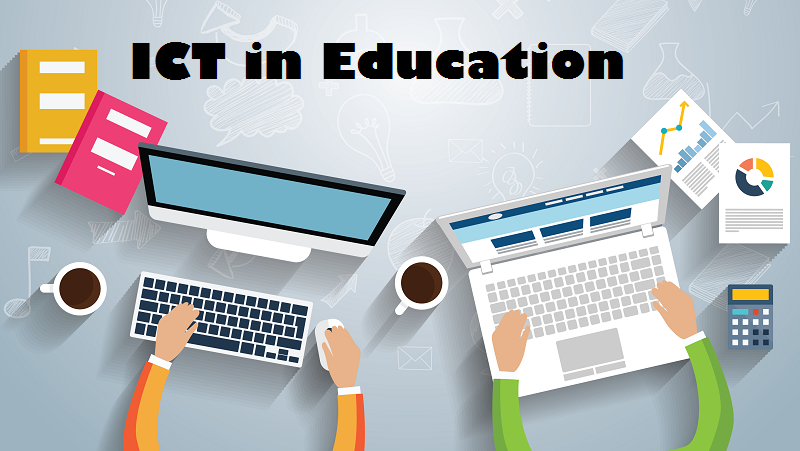The purpose of this article is to raise awareness of the importance of information ICT education as tools that have allowed the development of the teaching-learning process. It is facilitating in students the acquisition of knowledge in a more immediate and broad. However, this is not enough for the student to learn, because many times this knowledge is not always known to apply. The teacher plays a fundamental role in the knowledge and use of these technologies. Due to the didactic importance that tics can have if they are put to good use.
Teachers who know and manage ICT acquire skills that facilitate the use of these virtual tools, for example, they can surf the Internet, calculate data, use an email, etc. Despite all these advantages, many teachers today cannot fully understand the usefulness of using ICT in the development of their classes. It is reflected in the educational quality that students receive.
Importance of ICT education in regular basic education

Currently, education systems around the world face the challenge of using Information and Communication Technologies to provide their students with the necessary tools and knowledge required in the 21st century. In 1998, UNESCO’s World Report on Education, “Teachers and teaching in a changing world,” described the impact of ICTs on conventional methods of teaching and learning, also predicting the transformation of the teaching process -learning and the way in which teachers and students access knowledge and information.
In this regard, UNESCO said that in the educational area the strategic objectives aim to improve the quality of education through the diversification of content and methods, the promotion of experimentation, innovation, dissemination, and sharing. Of information and good practices, the formation of learning communities and stimulation of a fluid dialogue on the policies to be followed. With the arrival of technologies, the emphasis of the teaching profession is changing from a teacher-centered approach based on practices around the blackboard and the discourse, based on lectures, towards training focused mainly on the student within an interactive learning environment.

ICTs are the educational innovation of the moment and allow teachers and decisive students changes in the daily work of the classroom and the teaching-learning process of them.
ICTs provide tools that favor schools that do not have a library or teaching materials. These technologies allow entering a new world full of easily accessible information for teachers and students. In the same way, they facilitate the learning environment, which adapts to new strategies that allow the creative and fun cognitive development in the traditional areas of the curriculum.
With the use of computers or ICTs, students develop the capacity for understanding, logic, thus promoting the process of meaningful learning in students.
It is important to highlight the importance of ICT in schools, for the cognitive level that will improve in children and teachers, by acquiring a new role and knowledge, such as knowing the network and how to use it in the classroom and interacting with the benefits and disadvantages.
The incorporation of ICTs in education

It has a function to be a means of communication, the channel of communication and exchange of knowledge and experiences. They are instruments to process information and for administrative management, the source of resources, recreational means, and cognitive development. All this leads to a new way of developing an academic unit. Therefore, to evaluate because of the forms of teaching and learning change, the teacher is no longer the manager of knowledge. The guide allows guiding the student in front of his learning. In this aspect, the student is the “protagonist of the class,” because he is the one who must be autonomous and work in collaboration with his peers.
Therefore, ICTs are important in teacher training and not only in initial training, but throughout their professional lives, because more and more ICTs play an important role in students and kids learning, remember that for example, the use of the Internet increasingly acquires more followers, which implies that the information is searched and found faster than inside the school.
For many teachers the use of ICTs implies certain disadvantages, such as learning to use technology, updating equipment, and programs, above all, it means taking time away from the workplace, which many teachers do not intend to access.

Despite the above, the use and implementation of ICTs in the curriculum allows the development of new ways of teaching and learning, because teachers can acquire more and better knowledge within their area allowing innovation, as well as the exchange of ideas and experiences with other establishments, improves communication with students.
The main functionalities of ICT in Regular Basic Education are related to the following:
- Digital literacy of students, teachers, and families.
- Personal use (teachers and students): access to information, communication, management, and data processing.
- Management of the center: secretariat, library, management of student tutoring.
- Didactic use to facilitate the teaching and learning processes.
- Communication with families (through the school website).
- Communication with the environment.
- The relationship between professors of different schools (through networks and virtual communities): share resources and experiences pass information, questions.
In the following table, the main functions of ICTs in current educational environments are presented from another perspective.









